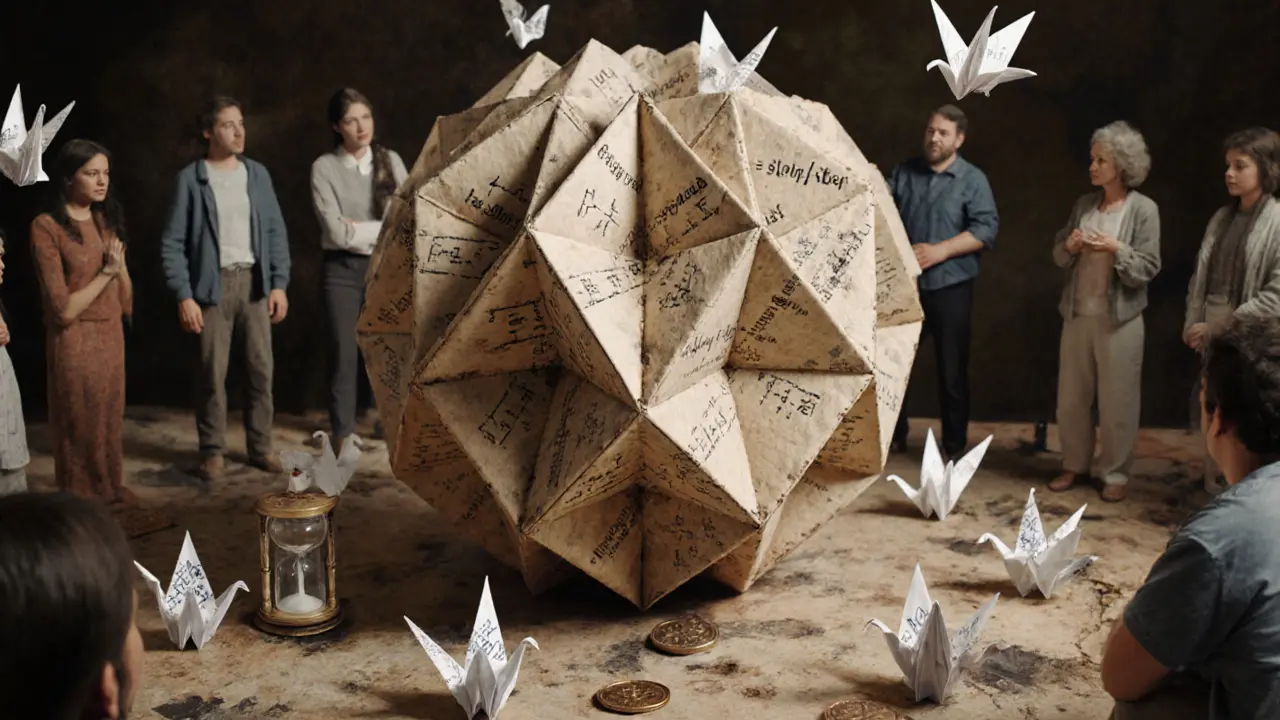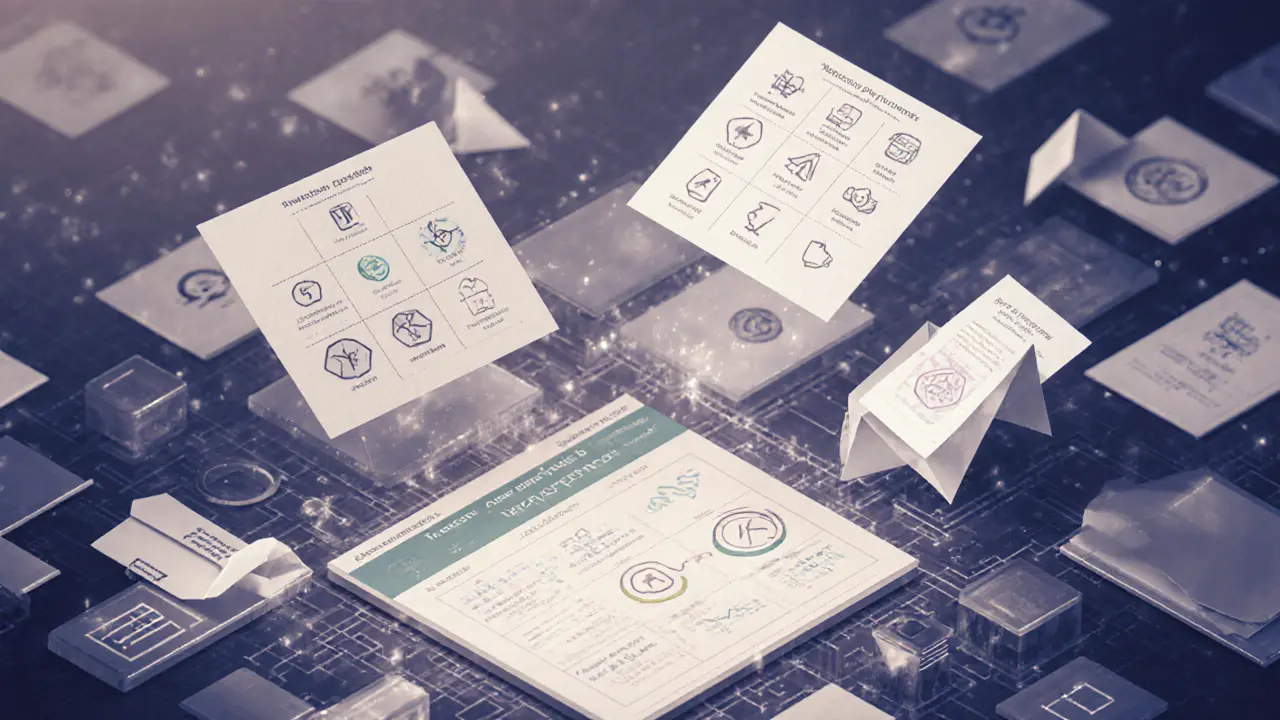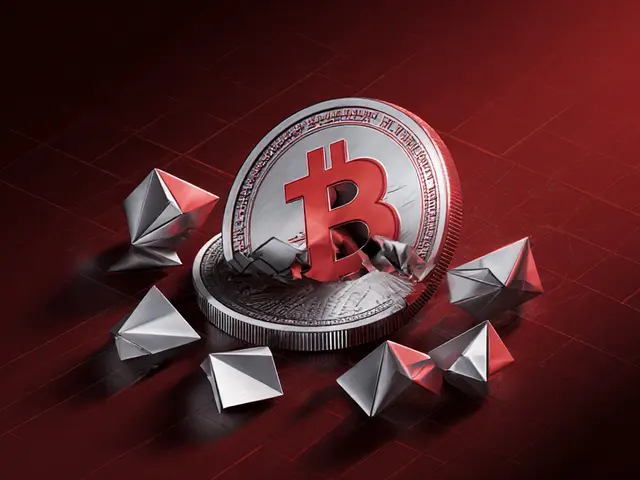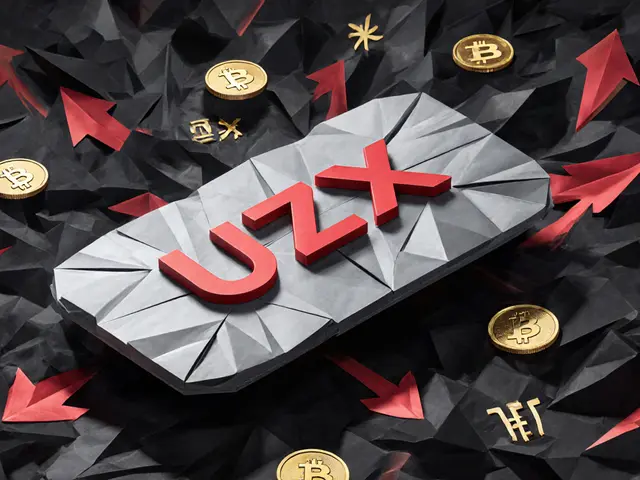DAO Voting Power Calculator
Understand Your Voting Influence
Calculate how your voting power changes across different DAO voting systems based on your token holdings and participation rate.
Creating a proposal and voting on it in a DAO isn’t like clicking a button in a corporate meeting. It’s a transparent, on-chain process where every vote is recorded forever, and execution happens automatically - if the rules are met. But getting there isn’t simple. Many new members join a DAO expecting democracy, only to find themselves lost in a sea of technical jargon, low turnout, and proposals that never get passed.
What Is a DAO Proposal?
A DAO proposal is a formal request to change something in the organization. It could be anything: spending treasury funds to hire a developer, changing the rules for voting, buying a piece of digital land, or even updating the smart contract that runs the DAO. Unlike traditional companies, there’s no CEO who says ‘yes’ or ‘no.’ Instead, the community votes. And only if enough members agree - following the exact rules coded into the system - does the action happen.Proposals are written in plain text and submitted through tools like Snapshot, Aragon, or Colony. They need a clear title, a summary, and a detailed description. Poorly written proposals get ignored. One member on Reddit said they spent three hours reading a single proposal because the documentation was so bad. That’s not unusual. According to a 2023 audit by Colony, 43% of DAOs don’t even provide templates for proposals. That leads to confusion, low participation, and wasted time.
How Proposals Are Created
The process of creating a proposal varies by DAO, but most follow a similar structure:- Access the DAO’s governance dashboard (usually through a web interface like Aragon or DAOhaus).
- Click ‘Create Proposal’ and fill in the title and description.
- Define what the proposal does - for example, ‘Transfer 50 ETH to the marketing wallet.’
- Set the voting period (typically 3 to 7 days).
- Choose the voting mechanism (token-weighted, quadratic, etc.).
- Set a quorum - the minimum percentage of votes needed for the proposal to be valid.
- Review and publish.
Some DAOs require sponsorship. For example, MolochDAO requires at least three members to back a proposal before it’s even listed. This stops spam. Without it, a single wallet could flood the system with 100 low-effort proposals a day. That’s exactly what happened to Optimism’s RetroPGF Round 2, which received 1,287 proposals - but only 212 were worth voting on.
Other DAOs, like Colony, split proposals into two types: Motions (which require staking tokens) and Simple Decisions (which don’t). Staking means you put up a portion of your tokens as collateral. If the proposal passes, you get them back. If it fails, you lose them. This discourages reckless proposals.
How Voting Works in DAOs
Voting is where things get complex. There’s no single way to vote in a DAO. Different systems solve different problems - but each has trade-offs.The most common method is token-weighted voting. One token = one vote. It’s simple, fast, and used by 65% of DAOs. But it’s also the most vulnerable to whale dominance. In Uniswap’s September 2022 proposal, 97.3% of votes were in favor - but only 15.2% of token holders actually voted. The top 10 wallets controlled over half the voting power, according to Messari’s 2023 report. That’s not democracy. That’s oligarchy with a blockchain.
Enter quadratic voting. This system, championed by Ethereum co-founder Vitalik Buterin, makes it more expensive to cast many votes. To cast 2 votes, you need 4 tokens. To cast 3 votes, you need 9. To cast 10 votes, you need 100. It’s mathematically fairer because it reduces the power of large holders without banning them. Gitcoin used this for grant funding and saw 87% satisfaction among users. But turnout dropped by 37% because it’s confusing. Most people don’t understand the math.
Then there’s conviction voting, a newer model tested by Gitcoin in 2023. Your voting power increases the longer you hold your tokens. If you’ve held them for 30 days, your vote counts more than someone who bought them yesterday. This rewards long-term commitment and discourages short-term speculation. Early results showed a 31% increase in small-holder participation.
Some DAOs use delegated voting. You can assign your vote to someone else - like a trusted member or expert. Aave tested this in late 2023 and saw participation rise by 12%. It’s useful when most members don’t have time to research every proposal.

Why Most Proposals Fail
Even when a proposal is well-written, it often fails. Why? Low turnout. The average DAO sees only 15-20% participation. That’s far below the 30-50% quorums many systems require. ConstitutionDAO’s $47 million fundraising campaign had just 9.3% voter turnout. That’s not a failure of the system - it’s a failure of engagement.People don’t vote because:
- They don’t understand the proposal (poor documentation).
- They think their vote won’t matter (especially if whales dominate).
- They’re overwhelmed by the number of proposals.
- They don’t know how to vote (wallet setup, gas fees, Snapshot interface).
DAOs are trying to fix this. Juicebox added achievement badges for voting. DAOhaus built a no-code proposal tool. Aragon introduced voting power decay - meaning if you hold too many tokens without using them, your voting weight slowly drops. In pilot DAOs, this reduced the top 10 holders’ influence by 22%.
Timelocks and Security
Even when a proposal passes, it doesn’t execute immediately. Most DAOs use timelocks - a delay between approval and execution. This gives time for anyone to spot a mistake or attack. Timelocks are typically 48 to 168 hours (2-7 days). BlockScience found 78% of Treasury DAOs use them.Without timelocks, a hacker could vote on a proposal to drain the treasury, and the money would be gone before anyone could react. In 2023, Chainalysis documented 27 governance attacks that stole $184 million. Timelocks stopped most of them.
Some DAOs also use rage quitting. If you voted yes on a proposal and later regret it, you can leave the DAO and get your tokens back - but only if you act before the proposal executes. This is a safety valve. It protects members from being forced into decisions they don’t agree with.

Tools Used for Voting
Most DAOs don’t build their own voting systems. They use existing tools:- Snapshot (used by 82% of DAOs): Off-chain voting. Fast, cheap, no gas fees. But votes aren’t on-chain, so they’re not legally binding. Good for non-financial decisions.
- Aragon (9%): On-chain voting. More secure, but slower and expensive. Used for treasury moves and contract changes.
- Colony (6%): Reputation-based voting. You earn voting power by contributing work, not just holding tokens.
- DAOhaus (3%): Simple interface for non-tech users. Built on Aragon, but easier to use.
Snapshot dominates because it’s free and fast. But it’s also the most vulnerable to manipulation. Since votes aren’t on-chain, someone could create 1,000 fake wallets and vote with them - a sybil attack. That’s why many DAOs combine Snapshot for polls with on-chain execution for final decisions.
What’s Next for DAO Voting?
The future of DAO governance isn’t about choosing one system. It’s about mixing them. Experts call this hybrid governance.By 2025, most DAOs will likely use:
- Quadratic or conviction voting for funding decisions (like grants or bounties).
- Token-weighted voting for operational changes.
- Reputation systems for contributor voting (not token holders).
- Delegated voting to boost turnout.
- Timelocks and rage quitting as standard security features.
The World Economic Forum’s 2023 DAO Governance Principles recommend minimum 30% quorums and mandatory cooling-off periods for major decisions. That’s a step toward maturity.
But the biggest challenge remains: getting people to care. A DAO is only as strong as its most active members. Without participation, even the most elegant voting system is just code on a blockchain - beautiful, but empty.
Can anyone create a proposal in a DAO?
It depends on the DAO. Some allow anyone to submit a proposal. Others require sponsorship - meaning a few members must support it first. Some DAOs require you to stake tokens or have a minimum token balance. The goal is to prevent spam and low-quality proposals.
How many votes do I need to pass a proposal?
It varies. Most DAOs require a quorum - a minimum percentage of voters (often 30-50%) - for the vote to be valid. Then, a simple majority (50%+) or super-majority (67%+) is needed to pass. Critical decisions like changing the treasury rules often need 75% approval.
What’s the difference between on-chain and off-chain voting?
On-chain voting happens directly on the blockchain using smart contracts. It’s secure and automatically executes, but it costs gas fees and is slow. Off-chain voting (like Snapshot) happens on a website and doesn’t cost gas. It’s fast and cheap, but the vote isn’t legally binding - it’s a signal. Most DAOs use off-chain for polls and on-chain for final execution.
Why do some DAOs use quadratic voting?
Quadratic voting reduces the power of large token holders. Instead of one token = one vote, you pay more tokens to cast more votes. For example, 2 votes cost 4 tokens, 3 votes cost 9 tokens. This makes it harder for whales to dominate decisions and gives smaller holders more influence. It’s designed for fairer funding of public goods, like open-source projects.
What happens if I vote yes but later change my mind?
In most DAOs, you can’t undo your vote. But some use a feature called rage quitting. If you voted yes and the proposal is about to execute, you can leave the DAO and get your tokens back - before the action happens. This protects you from being forced into decisions you regret.
Are DAO votes legally binding?
On-chain votes are technically binding within the smart contract - if the code says ‘execute,’ it will. But legally, they’re still in a gray area. Governments haven’t fully recognized DAOs as legal entities. The SEC has taken action against some DAOs, saying they might be unregistered securities. So while the code executes, legal liability is still unclear.
How can I increase my influence in a DAO?
You can increase influence by holding more tokens, contributing work (in reputation-based DAOs like Colony), or becoming a trusted delegate. But the best way is to engage consistently - read proposals, discuss in Discord, and vote. DAOs reward active members, not just big wallets.
What’s the biggest problem with DAO voting today?
Low participation. Most DAOs have under 20% voter turnout. That means a small group - often whales or insiders - controls decisions. Without broad participation, DAOs lose their democratic purpose. Solutions like delegated voting, conviction voting, and better documentation are being tested to fix this.
Final Thoughts
DAOs are still young. Their governance systems are experimental, messy, and evolving. But they’re also the most transparent way to organize a group of people without a central authority. The real challenge isn’t the technology - it’s the human part. Getting people to care, understand, and show up.Right now, the system favors those who have time, knowledge, and tokens. But tools are improving. Voting models are getting smarter. And as more people join and learn, DAOs will become less about who has the most money - and more about who contributes the most.





Prateek Kumar Mondal
DAOs are the future but most people treat them like a game. You don't just hold tokens and wait for free money. You show up read the docs and vote. Simple.
Nick Cooney
sooooo... token weighted voting is just oligarchy with a blockchain? lol. i guess thats why my 0.002 ETH vote got ignored. next time ill just write a 10 page essay in markdown and hope someone reads it.
Clarice Coelho Marlière Arruda
i tried voting on a dao last week and got stuck on the wallet thing. why does everything need metamask? cant i just click a button like on twitter?
Ron Murphy
The structural asymmetry in token-weighted governance is a well-documented failure mode. Quadratic and conviction mechanisms attempt to mitigate concentration effects, but they introduce cognitive overhead that suppresses participation. The trade-off between efficiency and equity remains unresolved at scale.
Saurav Deshpande
They say DAOs are decentralized. But who really controls the wallets? The same people who owned the crypto before it was cool. The whole thing is a pyramid scheme dressed up as democracy. They just want your gas fees.
Paul Lyman
you guys are overcomplicating this. if you want to make a difference in a dao? just show up. read one proposal a week. vote. talk in discord. you dont need to be a coder or a whale. just be consistent. i started with 0 tokens and now i help shape proposals. its not magic. its effort.
Frech Patz
Is there any peer-reviewed empirical study that correlates voter turnout with proposal success rates across DAO ecosystems? The 15-20% figure cited appears anecdotal.
Derajanique Mckinney
why do i have to learn 5 new apps just to vote on a proposal? i miss when we just voted on memes in the group chat 😩
Rosanna Gulisano
If you're not staking your tokens you're not serious. Period.
Sheetal Tolambe
I love how DAOs are trying to fix participation. Even small steps like achievement badges help. I voted for the first time last week and felt proud. Small wins matter.
gurmukh bhambra
you think this is bad? wait till the government starts regulating this. they'll shut it all down. they hate freedom. they want control. you think you're voting now? you're just being watched.
Sunny Kashyap
why do americans make everything so complicated? in india we just vote and move on. no need for quadratic math or conviction. just pick the guy with the best meme.
james mason
Honestly, I find it charming how everyone thinks they're participating in a revolution. Meanwhile, I'm sitting in my penthouse with 12k ETH and watching the peasants argue over Snapshot. The real power has always been in the private keys.
Anna Mitchell
I think the real issue isn't the tech. It's that people don't feel connected. DAOs need more community events. More voices. More warmth.
Jean Manel
Let's be real. 90% of DAO proposals are garbage. The fact that anyone can submit one is the problem. You don't let a 12-year-old run a corporation. Why are we letting them vote on treasury funds?
William P. Barrett
Democracy without responsibility is theater. DAOs force us to confront the uncomfortable truth: most people don't care enough to be free. The system isn't broken. We are.
Cory Munoz
I get why people feel lost. I used to be one of them. But I found a mentor in the discord. They walked me through Snapshot. Now I vote every week. It’s not hard. You just need someone to say hey here’s how.
Jasmine Neo
Quadratic voting? Conviction? Please. The only thing that matters is who controls the multisig. All these models are just theater to make the whales feel less guilty.
Allison Andrews
I wonder if reputation-based systems like Colony could scale. What happens when you have 100k members? Does reputation become just another form of token?
Wayne Overton
Gas fees are the real tax on democracy. If voting costs $50, only the rich can participate. That's not innovation. That's exclusion.
Alisa Rosner
Just a quick tip! If you're new to DAOs, start with Snapshot. No gas. Easy. Then check out DAOhaus - their interface is actually friendly. And always read the proposal title twice. So many people miss the key detail because they skim.
MICHELLE SANTOYO
THEY KNOW. THEY KNOW WE'RE WATCHING. EVERY VOTE IS TRACKED. EVERY WALLET IS LOGGED. THEY'RE USING THIS TO BUILD A GLOBAL IDENTITY SYSTEM. YOU THINK YOU'RE VOTING ON A TREASURY? YOU'RE BEING PROFILED.
Lena Novikova
If you're not staking you're just a tourist. And if you're using Snapshot you're just a ghost. Real governance happens on chain. Period.
Olav Hans-Ols
I used to think DAOs were chaotic. Now I see it as organic. No boss. No hierarchy. Just people trying to build something together. Messy? Yeah. Beautiful? Also yeah.
Kevin Johnston
Just voted on my first proposal today 🎉 You guys are doing great. Keep showing up!
Dr. Monica Ellis-Blied
The notion that DAOs are inherently more democratic than traditional organizations is a fallacy. Governance structures must be intentionally designed with equity as a core metric - not an afterthought. Without enforceable quorums, transparency, and accessibility, DAOs replicate - and amplify - existing power imbalances.
Herbert Ruiz
You don't need to understand quadratic voting. You just need to hold more tokens than your neighbor. That's the system.
Lawrence rajini
I started voting because I wanted to help fund open-source devs. Now I’m hooked. It feels good to be part of something real. Not just buying and selling. Actually building.
Matt Zara
I don't care what system you use. Just make it easier for normal people. No jargon. No gas fees. No 5-step guides. Just click and vote. That's all.
Prateek Kumar Mondal
I see a lot of people saying DAOs are broken. But I’ve seen what happens when people stop showing up. The whales win. The projects die. The only way to fix it is to be the person who shows up.